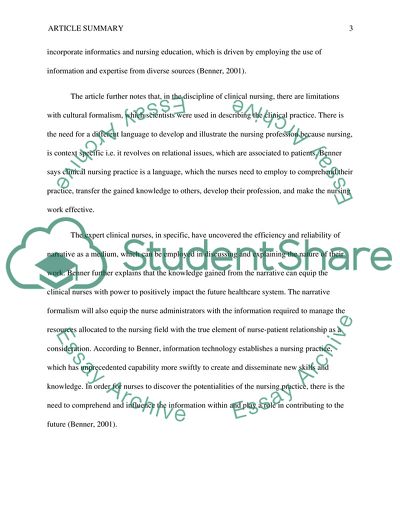The Significance of Developing Expertise, Which Is Embedded in the Cli Article. https://studentshare.org/nursing/1770263-summarize-article
The Significance of Developing Expertise, Which Is Embedded in the Cli Article. https://studentshare.org/nursing/1770263-summarize-article.


